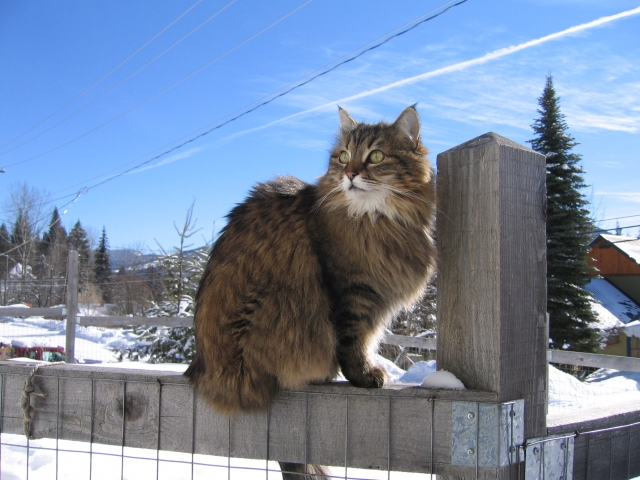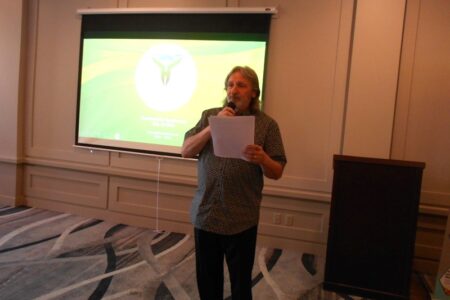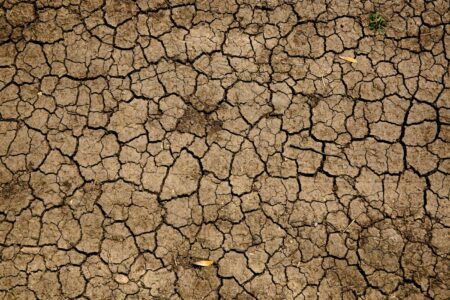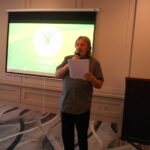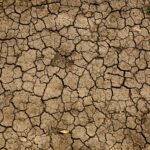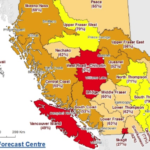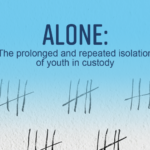Editorial: Ignorance as a Survival Tactic
There, a nice picture of a cat. Now for some of the stuff we’d rather ignore, even if that’s not a very smart move.
In Ruth Ozeki’s 1998 novel “My Year of Meats” the main character ponders ignorance and explains, “ignorance is an act of will, a choice that one makes over and over again, especially when information overwhelms and knowledge has become synonymous with impotence.” She goes on to say, “I would like to think of my ‘ignorance’ less as a personal failing and more as a massive cultural trend, an example of doubling, of psychic numbing [–] if we can’t act on knowledge, then we can’t survive without ignorance.”
In 1990, the Intergovernmental Panel on Climate Change (IPCC) issued a report on climate change, outlining the human causes and likely effects of climate change, and recommendations on preventing it from worsening. Did anyone hear about that report, back then? If governments knew about it, why did they not begin serious action to combat climate change? And why did mainstream media ignore the report on matters so crucial to everyone’s future quality of life?
As Dr. Suzuki points out in his current column, 25 years ago over 1,700 of the world’s most renowned scientists issued a “Warning to Humanity” to alert us all, and especially world political leaders, to the problems our way of life is causing and exacerbating. They outlined the steps that humankind needed, and now needs even more. I suggest that the masses of humanity who are struggling to get along from day to day have some excuse for failing to act on that warning, and for not even being aware of it, but what about world leaders who had — and still have — the power to effect positive change?
The “Warning” includes this statement: “Current economic practices which damage the environment, in both developed and underdeveloped nations, cannot be continued without the risk that vital global systems will be damaged beyond repair.” (Emphasis added.)
In 2000, then UN Secretary-General Kofi Anan called for a “Millennium Ecosystem Assessment” to examine the state of the earth’s life-support systems, and the effects on them of human activities. For more detailed information on that report, click here. Summarized, the bottom line “is that human actions are depleting Earth’s natural capital, putting such strain on the environment that the ability of the planet’s ecosystems to sustain future generations can no longer be taken for granted. At the same time, the assessment shows that with appropriate actions it is possible to reverse the degradation of many ecosystem services over the next 50 years, but the changes in policy and practice required are substantial and not currently underway.” (Emphasis added.) And that was many years ago now; those required changes in policy and practice are still not seriously underway.
When the Millennium Ecosystem Assessment was first released, I read the “Synthesis Report” and was appalled. I waited for media coverage to publicize the alarming findings; all I found was a trivial and uninformative two-sentence mention in Maclean’s magazine. Perhaps there was more somewhere, but not much. I thought that hundreds of thousands of people should be marching on their respective legislatures and parliaments to demand immediate action.
In 2008, Chris Martenson released “The Crash Course” on-line which spelled out very clearly and in fascinating and easily-understood “chapters” the cumulative effects of how we’re living, and the shockingly sudden finalizing of exponential increases. Increases in what, you may ask: well, just about anything. He describes the foundation of our economy. Did you know that our economy is founded on debt? Doesn’t sound very solid or sustainable, does it? The link above is to the “classic” version of the “Crash Course” but there has been an update, which I think did not improve on the original and is longer. In both versions, I recommend skipping the final “chapter” as it seems, to me at least, to be feeble and a bit beside the point.
The Fifth IPCC Working Group “Summary for Policymakers” is more direct in some its language than previous reports. The scientists are beginning to panic at the lack of response to their findings and recommendations — given the unfortunate consequences of that inaction for the human race, not to mention the rest of life on earth.
Now, gentle reader, you have an inkling of why I am often found with my nose in some escapist literature, vacuously trying to forget, for a while, the things I know. When insomnia seeps into my bedroom, as how could it not, given all of the above distressing facts, which are only a tiny sampling of those available, I understand why people look for causes: can we blame some identifiable group?
Racism and other forms of xenophobia are faulty responses to a desire for scapegoats. Don’t fall prey to it. To survive what’s coming down the pipe we need to stand together and work together, not fall into factions generating nastiness.
Is it our economic system? Well yes, but who can we blame for that? And really, that ancient cartoon character Pogo was all too correct when he uttered that famous line: “We have met the enemy, and he is us.“
Us: humanity en masse, and all that we collectively do to trash the biosphere. Many people are brilliant at something (well-known examples include Albert Einstein for math, Stephen Hawking for physics and cosmology, Leonardo da Vinci for art and inventiveness) and there are countless rational, compassionate, altruistic, far-sighted individuals. It isn’t even necessary to be brilliant at anything to grasp the magnitude of the fate we humans have brought upon ourselves and the rest of life on earth — just aware and sensible.
Collectively, we seem to be ruled by the baser impulses of our animal nature: territorialism, acquisitiveness, and dominance. We accord higher status to those with wealth and its visible proof; perhaps those should now be markers for shame, because the rich generate more waste and far more greenhouse gas emissions. We show ample evidence of hubris and short-sighted greed. Those primitive brain-stem urges seem to overwhelm our ability to act effectively at a national or global level on the knowledge we accumulate.
Yes, we live in interesting times. They are very likely to become much more interesting in coming decades. According to one author, human intelligence as a whole increases when humanity faces enormous challenges such as abrupt climate change, so humans as a whole should take a great leap forward in brain-power when the crunch really starts to bite. But things will have to (to quote the parrot in “Yiddish for Pirates” by Gary Barwin) “get bad before they get worse”, and until they get that much worse (“as long as we have our health”), we’ll collectively bumble stupidly along insisting on business as usual because, hey, we have a right to do what we feel like, and that’s what we’re comfortable with, right? And then urging death and destruction on those others we have arbitrarily decided to blame for the results of our oblivious business-as-usual.
While it’s getting worse, maybe I’ll just sit here and rub the cat’s ears and allow her purring to comfort me while I read something that may help me forget, for a while, what we’re doing to our grandchildren. And why we seem unable to stop doing it.


